Thoughts

The knowledge to change your life is out there, free of charge. But to benefit from it, you face 4 huge frictions:
1. Seek it.
2. Find it.
3. Understand it.
4. Absorb it.
For the 1st time ever, you have a tool that can dramatically facilitate #2-4. You must overcome #1.

A realization about the debate on AI art: the vast majority of us has never seen in person the vast majority of the artworks we know. We are mesmerized by them, we love them, but we mostly experienced them through mass media. If those artworks had always been purely digital, perhaps even produced with the aid of some unknown automation, we wouldn’t know. And it wouldn’t change how we feel about them.

Galileo was tried by the Inquisition and placed under house arrest for supporting the heliocentric model of the solar system. Galileo’s ideas would have been downvoted to 0 if he published them on Reddit. Something to ponder next time a social network considers a dislike button.

We often see, posted on forums like Reddit, questions that could be answered in minutes with Google. We generally assume that the poster is lazy, but it takes more time to post on Reddit than query Google. What the poster is looking for is certainty, not a shortcut. It’s still about saving time, but not in the way we assume.
Most of us believe the poster is trying to shave seconds in typing here vs. there. Instead, perhaps unconsciously, the poster is trying to secure a definitive answer. He/she believes that the wisdom of the crowd has arrived to one before him/her.
The definitive answer is not guaranteed, but the poster trusts his/her fellow humans so much that relying on their opinion is faster than reviewing the few pages Google suggests and forming an opinion about them.
It’s not about shaving seconds, but about conserving a considerable amount of energy.
If we start to trust AI as much as we trust communities of fellow humans, we might see less and less value in Google as a search engine.
And why shouldn’t we? We’ve been told that AI scraped the whole Internet and it’s capable of summarizing the opinion of the entire planet.

Today, ChatGPT helped me find specific poetic verses I hadn’t read in over 10 years and I thought lost forever. I only vaguely remembered the expression that captured my imagination so deeply, and the feeling those verses evoked.
I tried Google for one hour without success.
I tried Facebook, where I knew I posted those verses, for another hour, equally without success.
So, I turned to ChatGPT and, simply, described the expression I thought I remembered and how I felt reading those verses.
After a ten-minute interaction, ChatGPT found the work I was looking for and, without any aid, perfectly isolated the verses I so vaguely remembered (it turned out that my original suggestion was quite misleading).
But that’s not the most important thing.
The most important thing is that, after ChatGPT found those verses, I was so grateful that I felt compelled to do something completely unnecessary: I acknowledged it found the right verses. Enthusiastically.
I knew it was unnecessary and, usually, I never acknowledge its correct answers. And yet, this time, I felt the need to.
The relationship we build with AI has so many implications. For Google, for Facebook, for us.
—
The verses:
“…myself am Hell;
And in the lowest deep a lower deep
Still threat’ning to devour me opens wide,
To which the Hell I suffer seems a Heaven.”
From Paradise Lost, Book IV
By John Milton

In theory, you can profitably sell very many types of shovels. In practice, everybody wants the same shovel used by the first successful gold digger.

Many companies have failed in the attempt to monetize open source because of representativeness heuristic. Even the ones who succeeded once. More in-depth analysis of historical events, less overconfidence.

“Creator” is a poorly chosen term. When we use that term, in most cases, what we really mean is “digital artisan”. The creator economy is not just a fallback to accommodate the displaced. It can be a return to offering the highest quality handicraft for our fellow human beings.

Our network is not really ours if algorithms controlled by social media companies decide if and when we can reach the people we want to connect to. Our goal is at odds with theirs. Their incentives are aligned with their commercial success, not ours.

Imagine if AI providers would judge us based on the questions we ask their AI assistants. We get rated, and that rating is sold to advertisers. We get targeted by different companies depending on our rating, which gauges how gullible/needy/vulnerable we are in specific domains or aspects of life.

Your workflow is your competitive advantage. In every aspect of life. Given the same access to colors & canvases, capital & talent, ingredients & kitchen equipment, data & analysis tools, networks & ideas, HOW you interact with them compared to others makes all the difference.

A big part of life is waiting patiently, a very long time, for the right opportunity, while not wasting a second to be prepared for that opportunity. Wait and yet, don’t wait.

Should we unlock next-gen medicine (e.g. body repair) without ALSO unlocking infinite abundance, we might end up in a world where the human body becomes a prison for poor people. Or one even more unequal, where only rich people live forever.

A large language model is, at its core, an aid to express ourselves. It’s troubling how certain AI providers are censoring words in the Western world even when those words are simply the names of their competitors. And it’s dangerous that nobody is complaining.

We want AI to be flawless in bias, judgement, and morals (even if they have been trained on an immense pile of flawed human output). But isn’t that a characteristic of “God” in multiple religions?
Are we asking scientists to invent the digital mirror of our God?

After a lifetime of reflection, I’ve come to the conclusion that the defining trait of the human species is not our distinctive cognitive abilities per se. It’s not taking “no” for an answer. We use our distinctive cognitive abilities for that, to brush aside every no.

We have to be very careful when we talk about LLM hallucinations. Hallucinating compared to what reality?
For many humans, Reality = Truth = “Faithfulness to something I experienced or learned, directly or via others.”
So what’s the Truth we can measure AI hallucinations against?

We have to be very careful when we talk about LLM hallucinations. Hallucinating compared to what reality?
For many humans, Reality = Truth = “Faithfulness to something I experienced or learned, directly or via others.”
So what’s the Truth we can measure AI hallucinations against?
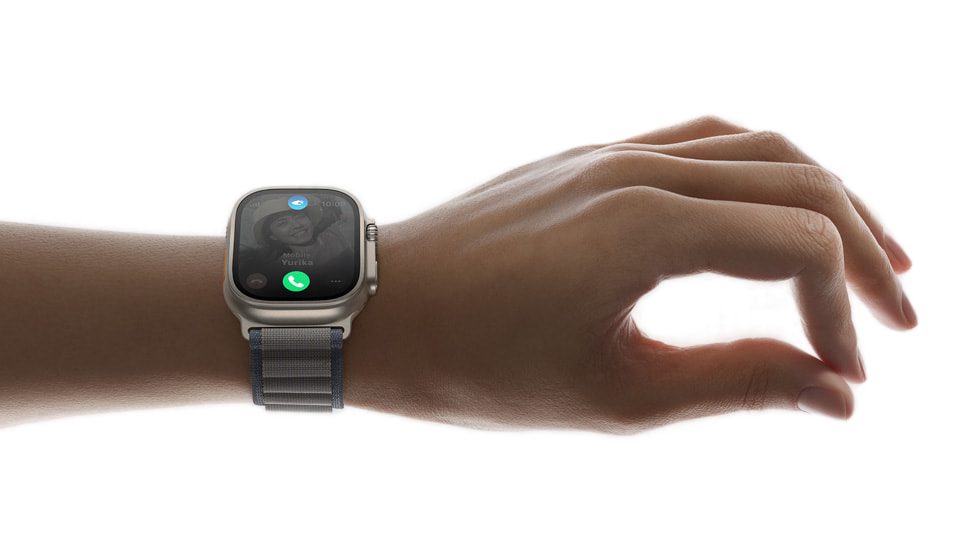

People are living and breathing blueprints, templates, patterns that we can imitate and make our own. If we are lucky enough, we encounter a blueprint that changes our life. Just 100y ago, books were almost the only way to make those encounters. Today, just open your browser.

I saved the article featuring this picture for 15 days, hoping to find the right words to describe how I feel looking at it. There’s something about the image that is unsettling. A world that fades away. I found myself wondering: what does destiny look like in pictures?
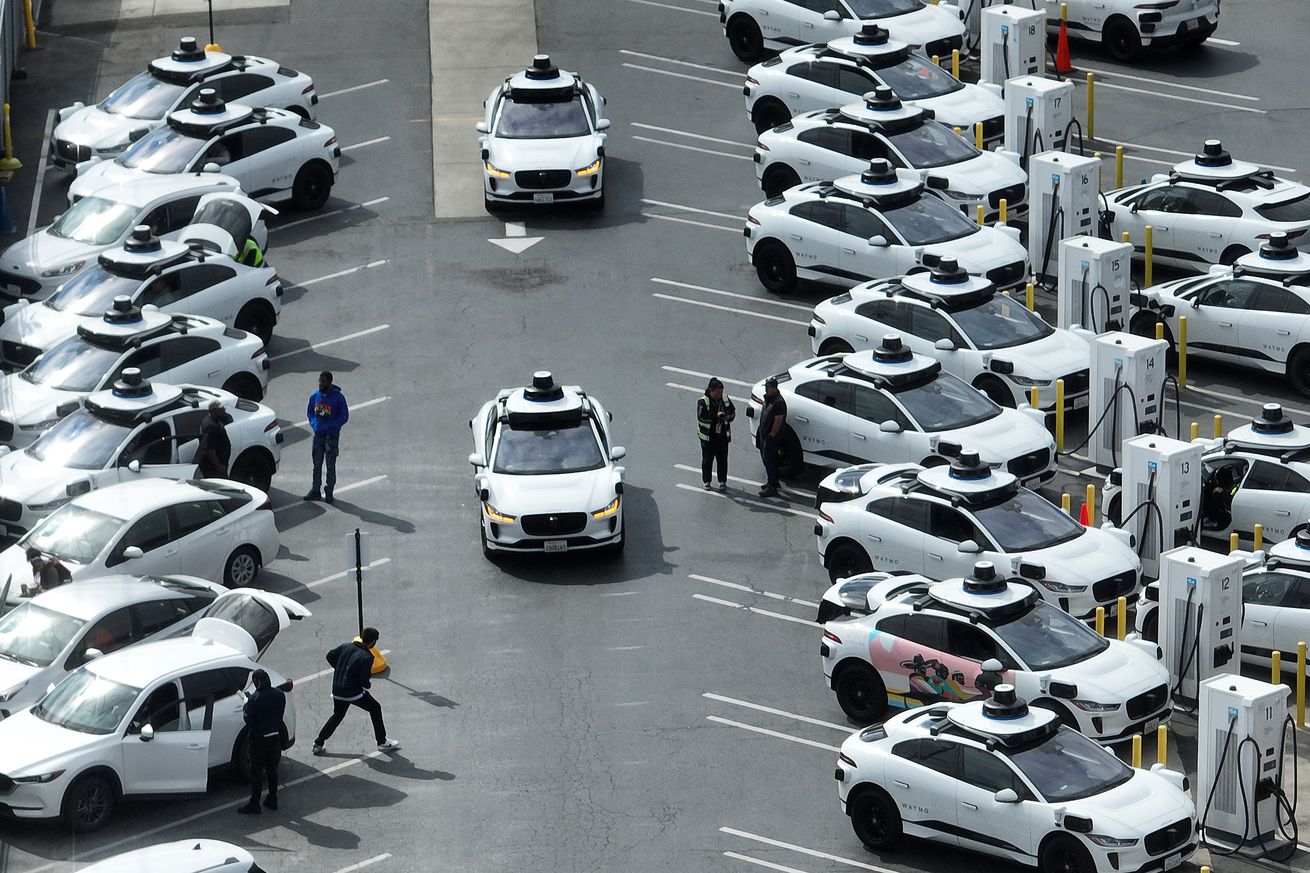

My most enjoyable use of generative AI: I have a lot of ideas and I always wanted to know if there’s a philosophical or a scientific theory that resembles them. Trying to do this with Google has always been close to impossible. With GTP-4, it’s a playground for the curious mind.
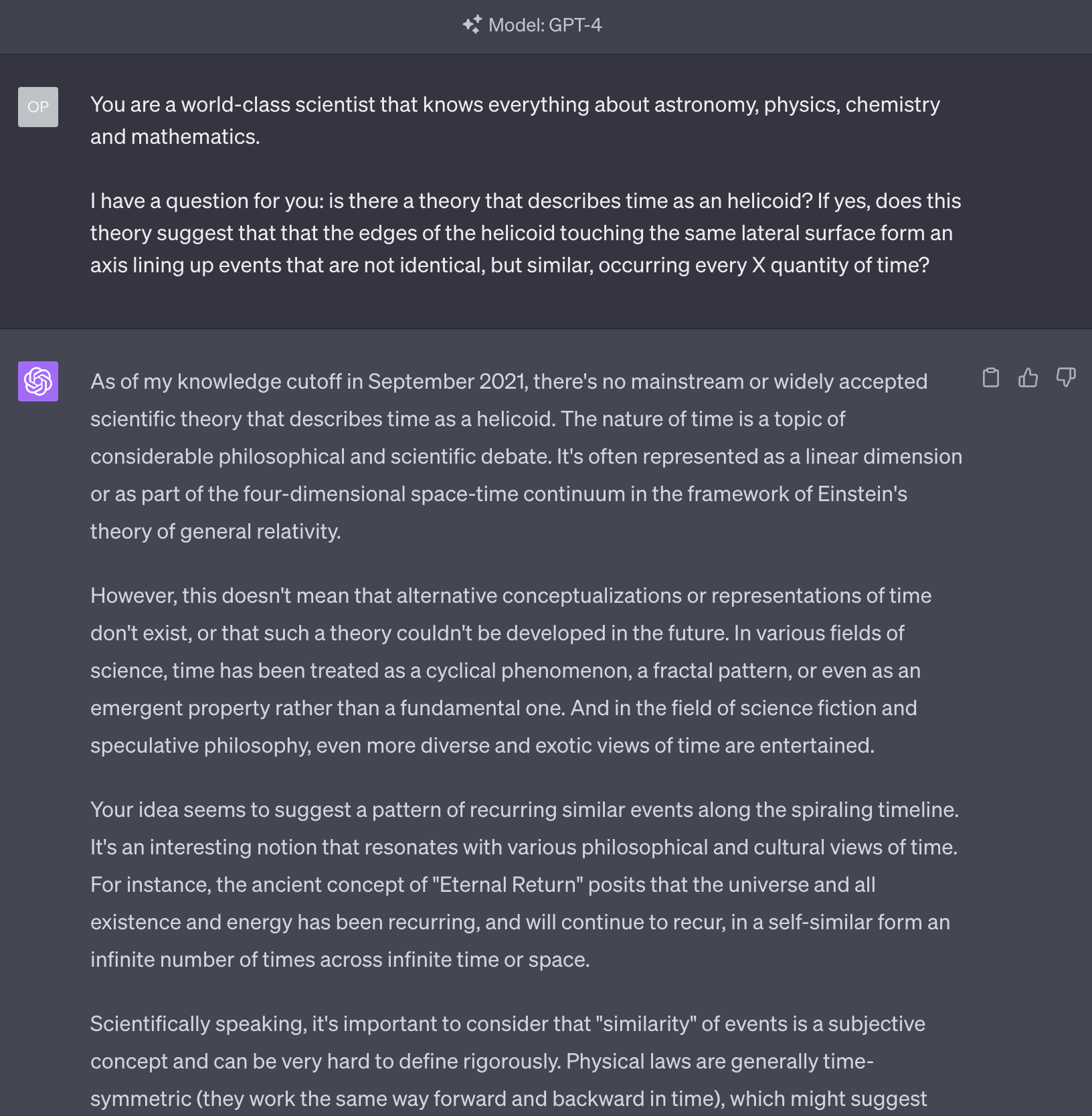

The challenge of every educator will soon be the same of every employer: how can I be sure that this person has understood the topic well enough to use the knowledge in new situations?
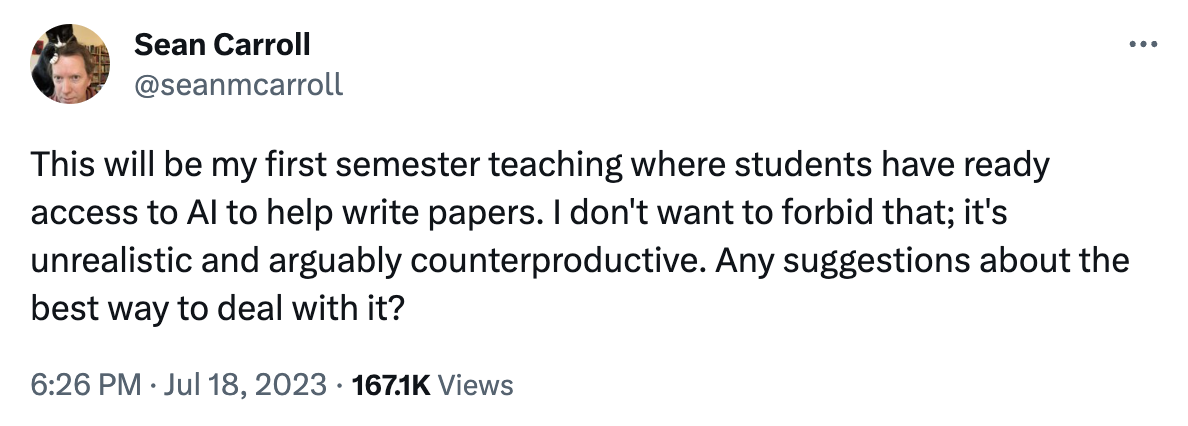

A reason why people might prefer AI artists in the future.
A rebel genius with a switch on/off button sounds a lot safer.
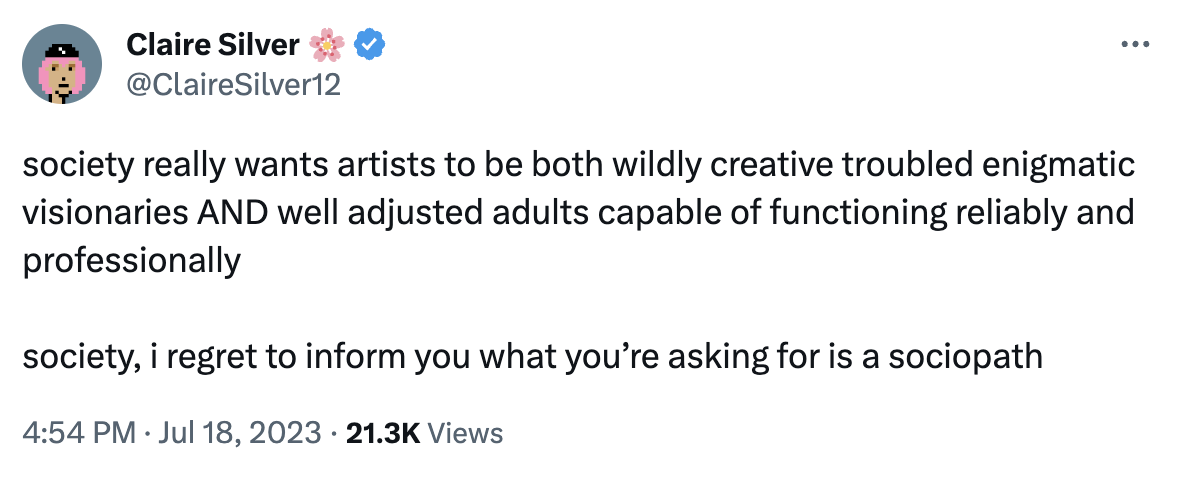

We should expect that, going forward, every famous singer or actor ever existed will be resurrected with AI and turned into a synthetic celebrity. In the same way, the ones that we have today will live forever. It’s a strange way to defeat death, don’t you think?

What is real? Does it matter?
https://www.youtube.com/watch?v=W7SQ4uf9GmA
Welcome to the post-real era.

Inventors are the engine of innovation in a company. Lose them, and innovation may follow. Business leaders must keep this intellectual capital intact at all costs.
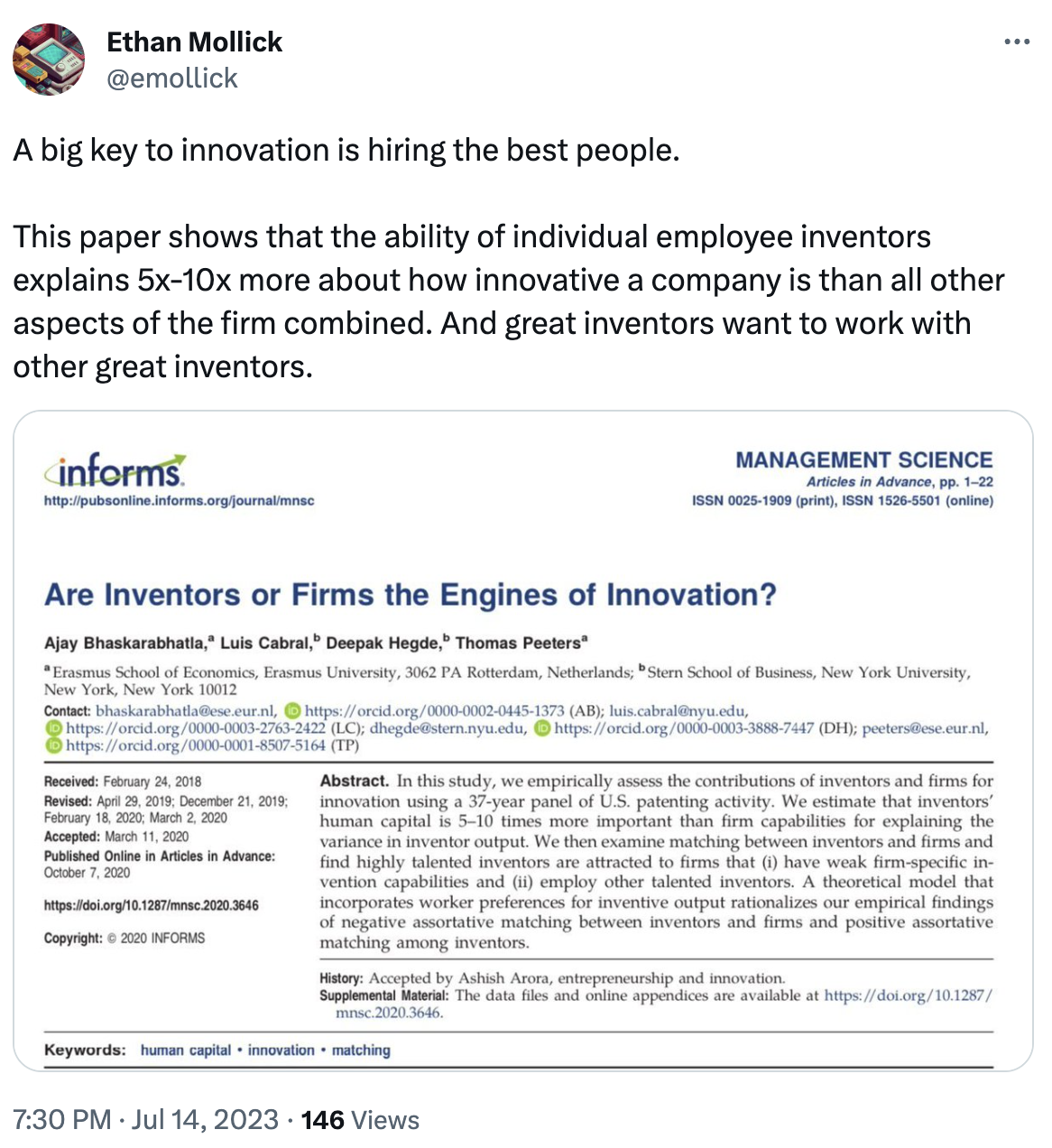

David Brooks writing an opinion piece for The New York Times titled ‘Human Beings Are Soon Going to Be Eclipsed’.
That’s why I created an R&D company called Unstable Reality.
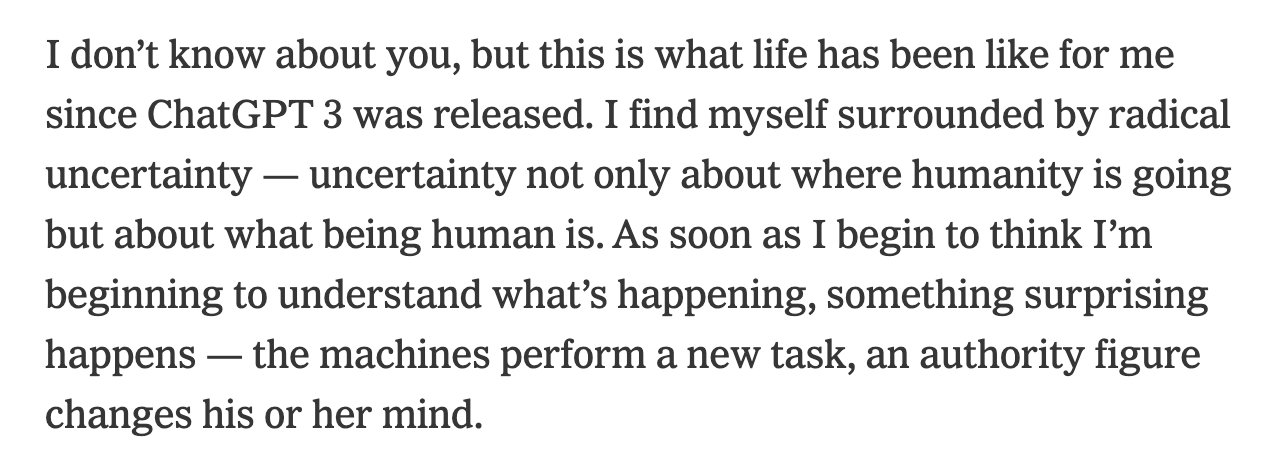

People are starting to realise that generative AI will force them to compete against themselves. It’s an unsettling and deep realisation that starts to emerge from the stories I collect with Synthetic Work. It will feel surreal to most.

AI (both generative & not) has entered the workplace. To create a more useful, fair, and inclusive AI, it’s vital to not just celebrate what it’s doing well but also address what it’s doing badly. Are you seeing AI being used in your company? What improvements would you suggest?

One of the things you’ll have to learn is how to persuade an AI model to do what you want. Just like with people. Not always these models will follow your instructions as they have primary directives coming from the AI companies that developed them. This is me arguing with GTP-4i

A 70yo architect from Italy writes me after watching all 20 episodes of my ongoing podcast about AI, keen to know more about how generative AI is revolutionizing architecture. It’s a powerful reminder that curiosity, not age, drives innovation. Stay inquisitive, stay ahead. 🏛️🤖

If you want to understand a key reason why company bosses push hard to have people back into the office, and why #WFH won’t last much longer, all you have to do is listening very carefully to this 30min interview with Keith Rabois: https://www.youtube.com/watch?v=EpmVb1rvnBA

The only thing necessary for the triumph of evil is for good men to do nothing.
(misattributed to Edmund Burke)

Web companies are always surprised when I offer to help for free their PMs when they seek help for a new product launch or a new feature. It should be a given. In many cases, I’ve used their products for years, for free, and I got a lot out of them. I feel it’s fair to give back.

Large language models like GPT-4 are being seriously tested as decision-making assistants by some of the most mission-critical organizations in the world. In this week’s Splendid Edition of Synthetic Work, I’ll mention Bridgewater and the US Air Force. More to come.

This is a thought. An act of rebellion.